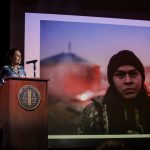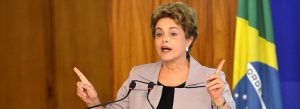From friend of the UDL, Ethan Earle, at In These Times:
Trump Is Trying to Make NAFTA Even Worse. It’s Time to Throw Sand in the Gears.
Many on the Left have been deeply critical of the North American Free Trade Agreement (NAFTA) since before it was fast-tracked into law by former President Bill Clinton in 1994. Now, President Donald Trump’s current plan to renegotiate NAFTA is poised to make the massive trade deal even worse.
In late May, a loose coalition of civil society groups gathered in Mexico City to discuss this upcoming renegotiation. Participants included the AFL-CIO, Canadian Labour Congress and over one hundred other labor, environmental, and immigrant rights organizations from across Mexico, the United States and Canada.
The meeting produced a joint declaration opposing a Trump-led NAFTA renegotiation and marked the kickoff of the latest international campaign against free-trade deals that benefit corporations and political elites at the expense of workers, communities and our shared environment. . .
Read the rest of the article at In These Times.






